Coppy with Keri – Atlanta Braves GM goes long on number of big subjects
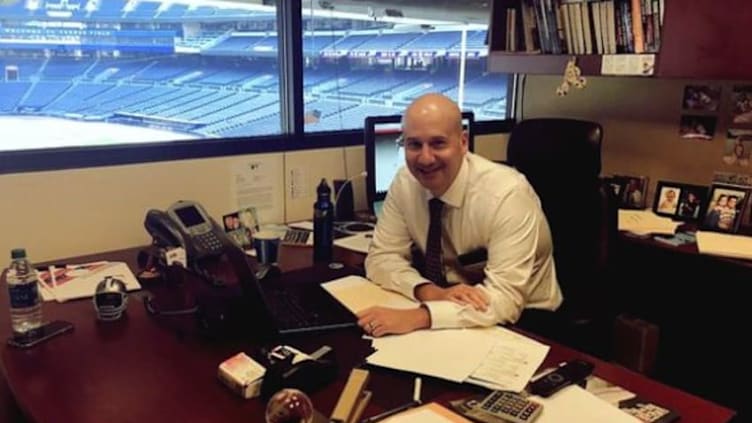
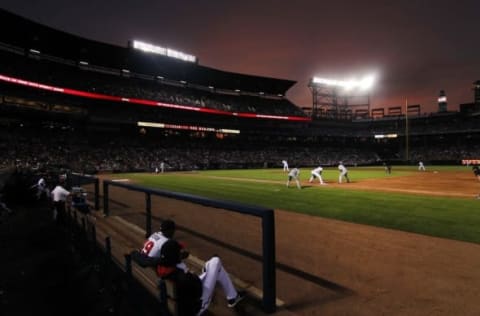
The Braves GM goes long on lots of things on The Jonah Keri Podcast
So before Fredi Gonzalez was finally axed, John Coppolella appeared on The Jonah Keri Podcast. There’s not much point in going over the brief words used to describe the difficult task in front of Fredi, because it’s now moot—Coppy may have already known he was planning to end Fredi’s tenure the same day he and Keri talked. But he said a lot of other interesting things in one of the broader looks at his life and processes that we’ve gotten to see (or in this case, hear, and you should listen to the whole thing if you’ve got the time):
The Jason Heyward Saga
Coppy said he knew that Jason Heyward was gone after 2015; not only that, he said he didn’t blame him. They simply couldn’t pay him. They knew they’d lose Justin Upton too. So what to do—roll the dice or make the tough call? They decided to accrue young talent.
Coppy said that trading Jason Heyward, “broke my heart,” but that he knew they couldn’t sign him, with no farm system, they decided to do what was best for the organization long-term.
“Our fans would’ve enjoyed Jason Heyward for that final year,” Coppy said. “It would’ve been great. But I also think they’re going to enjoy seeing Dansby Swanson, and seeing Ender Inciarte, and seeing Aaron Blair. I think they enjoyed seeing Shelby Miller, who was our lone All-Star last year. I think they’re going to enjoy seeing Tyrell Jenkins.”
What I would’ve loved to know is HOW Coppy knew Heyward was gone and WHY he was the first to go in the firesale. He’s been an injury-prone .260 hitter who plays excellent defense for most of his career—I believe our own Josh Brown has a scorching hot (seriously, handle with gloves) Nick Markakis-Heyward take, if you’re so inclined. I know young, talented players like Heyward don’t grow on trees and are wise to cash in when they can. But factoring in local ties and the money that Atlanta was later able to take off the books with other trades, it seems strange to have started with Heyward and not waited until after other avenues were exhausted.
Next: The Yankee Trade That Wasn't
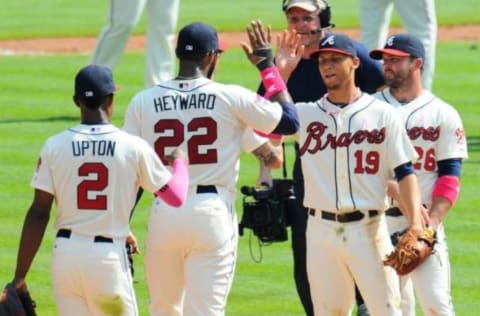
The Yankee Trade That Wasn’t
The Heyward saga also led to potential what-ifs, with several possibilities I wish were broached on-air, but this one was alluded to. Described as a ‘monster deal’, though certainly not locked in, Coppy acknowledged this deal was at least discussed in some fashion (maybe more than Heyman let on here):
Heyward/simmons/carpenter/bj upton/c Johnson for severino/judge/banuelos/clarkin/sanchez said floated. Nyy didnt pull trigger
— Jon Heyman (@JonHeyman) March 8, 2016
Better or worse than the ultimate outcome, having Severino, Judge and Sanchez would’ve been different—Sanchez, particularly, at a time when catching has become such a premium in baseball. And without needing to overpay to move BJ, perhaps Craig Kimbrel‘s still around and they don’t have to trade CJ and eat the Michael Bourn/Nick Swisher contracts.
BUT… no Shelby… and by extension, no Dansby/Ender/Blair.
(Later, Coppy was EXCEEDINGLY complementary of Dave Stewart, Diamondbacks general manager, which—given the nature of the fleecing Stewart took in ponying up three solid-to-spectacular players for Shelby Miller—is exactly how anybody would’ve played it. Don’t burn that bridge, in two years he may be looking for an out on Zack Greinke too.)
Next: Trash Can Food
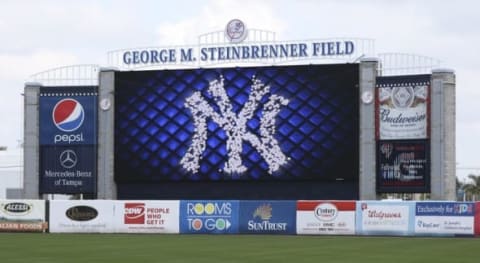
Trash Can Food
More from Tomahawk Take
- Atlanta Braves 2012 Prospect Review: Joey Terdoslavich
- Braves News: Braves sign Fuentes, Andruw’s HOF candidacy, more
- The Weakest Braves Homers Since 2015
- Atlanta Braves Sign Joshua Fuentes to Minor League Deal
- Braves News: New Year’s Eve comes with several questions about the 2023 Braves
When reminiscing about the early years with the Yankees, when he made no money, Coppy copped to having eaten food out of trashcans, which illustrates the plight of working in sports a lot of the time—you don’t make much money and occasionally go slightly insane. John Coppolella had a six-figure job with IBM lined up out of college AND WALKED AWAY TO GO MAKE $18,000 ON AN INTERNSHIP THAT GUARANTEED HIM NOTHING.
I don’t know if that illustrates the drive he has to be great at what he does or a sociopathic belief in one’s self that rivals that of any professional athlete. Either way, it gives a brief glimpse into why he felt confident in tearing it down in Atlanta; the kind of guy that walks away from six figures at 21 years old to go be abused by George Steinbrenner—although Coppy seemed to enjoy his time with The Boss—is not the sort that shies away from doing something unpopular in the short term if it will help in the long term.
(Which is in itself a fascinating dichotomy when you consider how the Yankees were operated during Steinbrenner’s twilight years, with no farm system and a constant over-payment for players.)
Next: Scouting, Analytics and How to Build
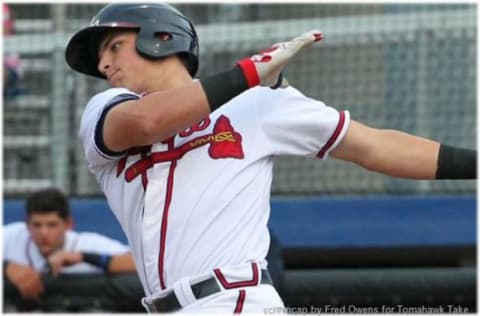
Scouting, Analytics and How to Build
Here’s the meat. You’d think a guy with a business management degree would be largely numbers-based, but according to Coppy, he liked scouting more. His reasoning? He could’ve made more money somewhere else with numbers, but he liked scouting and the nuances of discovering a player and how that process works.
A middle-of-the-road approach—not too heavy on analytics or the eye test—is what you want from the guy at the top. He trusts his scouts, and he cites his draft record in 2015—taking guys based on scout recommendations rather than the biggest name left on the board, turning to high schoolers with his first four picks—as evidence that his Braves are willing to trust their collective gut and pass on ‘the big name’.
Fifteen years (the date of Atlanta’s last playoff series victory) is a long time. Coppy pulls no punches, lamenting that the Braves, “Lost their way” over the years, by virtue of picking later due to their success and trading away players in an effort to produce a winner but also going “safe” (i.e. established college player) rather than drafting for upside. The Braves Way, to Coppy, is young, raw, talented players in a good developmental system. That means high-schoolers and the foreign market.
(I listened to this podcast three times and unless I missed it, nobody said Frank Wren’s name, not even once. I screamed it at my computer twice, but that’s pretty much it.)
Coppy said that, at no point since arriving in 2006, did he ever look around at Spring Training and think he was seeing a World Series team. A lot of people either lied to themselves or really felt like the Braves had a contender during the 2010-13 era. And he didn’t. I like to think this isn’t revisionist history and that the reason he’s the man the John’s ultimately leaned on for the rebuild is because he wasn’t willing to anoint the Up-Up-and-a-Hey group as title contenders just because they were big names.
Next: Misery
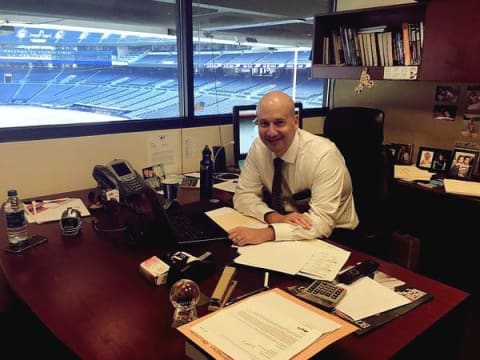
Misery
Coppy said a dirty word! That’s not the real takeaway here, but hearing strait-laced Coppy describe the current state of affairs as “(expletive) miserable” was a real treat.
So he’s not happy, but he’s pragmatic. Said the fans that stuck with the team would be rewarded. He’s sure that between the system and the draft and the international slots, the Braves are going to be really good for a while. Not “stand the chance to be” or “could be” or “should be”. Just going to be. He could have those words thrown back at him in two years but you have to admire the confidence.
Next: The Braves Fired Fredi Because He Was Failing At His Job
But the best part was when he talked about the pain of trading an Andrelton Simmons, of trading a Shelby Miller. The Braves as constructed at that time weren’t going to the World Series; they could have a winning season, but he doesn’t care about that. Those trades make this team, as presently constructed with a deep farm system, high picks and oodles of money to spend on the international scene, closer to the championships they seek.